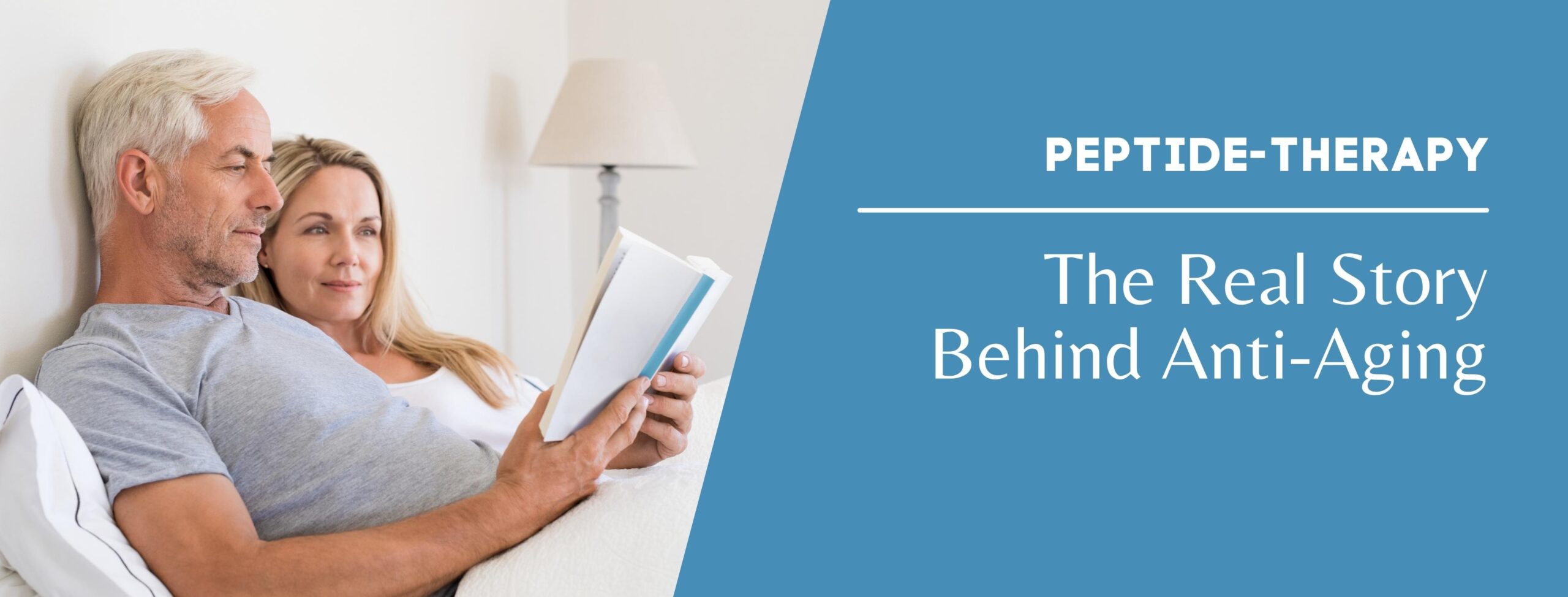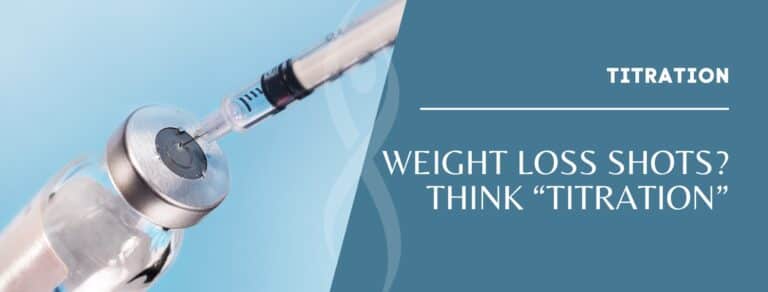Anti-aging is a tale as old as time. Beginning with the Greeks in the 5th century B.C., the Fountain of Youth has made its way through history. Many thought they had discovered it with Alexander the Great in the 4th century A.D., all the way to Ponce de Leon who, after traveling with Christopher Columbus to the Americas, claimed it can be found in Florida. Both women and men have been fascinated throughout the ages with how to maintain their youth and reverse the aging process. The story is a long one, to be sure. But is anti-aging with peptide therapy science? It’s a long story, to be sure. But we’ll make it an abridged edition, for now.
The scientific explanation of aging is rooted in biology, with the molecular breakdown and damage of the body’s cells over time. Cells are the building blocks of the body. Your cells are programmed to divide, multiply and perform basic biological functions. They age based on the number of times they are replicated. This is called cellular aging. The more they divide, the older they get, and in losing their ability to function properly, you lose your ability to stay young. In simple terms, their lifespan affects your lifespan.
Let’s turn the page to Growth Hormone and Peptide Therapy. Human Growth Hormone is produced by the pituitary gland—a pea-sized gland at the base of the brain. As we age, human growth hormone production declines. After age 30, levels drop by about 1% each year. Consequently, our bodies begin to show signs of aging, inside and out. Peptides are fast-acting short-chain amino acids that are naturally produced in the body. And they can be harnessed to fight the effects of aging. Because peptides are one of the building blocks of proteins, stimulating their growth at the cellular level can lead to a host of health benefits including younger skin, leaner muscle mass, and even increased sleep.
When we talk about younger skin, we’re really talking about collagen—or, more accurately, a lack of it. Pretty much every desirable characteristic of healthy skin comes down to collagen content; the more of this protein we have, the firmer, plumper, and more hydrated our skin looks. Is it any wonder collagen is showing up in a Google-staggering number of anti-aging creams and supplements? The question is, do they actually work? To a point, yes. Some peptide-enriched anti-aging formulas may help regenerate the skin by stimulating collagen production to increase skin firmness. Your skin might feel a bit more hydrated. Wrinkles a little less prominent. But long term, it just doesn’t do the job the way peptide therapy does. But we’re getting ahead of ourselves.
Now, about leaner muscle mass. Muscle mass is essential to maintain a long and healthy life. Age-related muscle loss is called sarcopenia, which literally means “lack of flesh.” After age 30, you begin to lose as much as 3% to 5% per decade. Most men will lose about 30% of their muscle mass during their lifetimes. As we lose muscle mass, we simultaneously gain fat mass. As the body becomes weaker, we don’t just lose strength and energy, we become more susceptible to illnesses often associated with aging such as osteoporosis. This is because active muscles send signals to bones that help them stay strong.
And did you know you can sleep yourself younger? Sleep is nature’s anti-inflammatory. It’s the time when your body repairs itself. This is true for your skin, as much as it is for your brain or your muscles. It’s the time your body plugs into the growth hormone that keeps us young. So, poor sleep can result in premature aging. A study done by UCLA researchers discovered that just a single night of insufficient sleep can make older adults’ cells age quicker. This might not seem like a big deal, but it has the potential not just to make your skin look older in the morning, but to bring on a lot of other problems such as high blood pressure, diabetes, and heart disease. But don’t stop reading now…
There’s an exciting chapter in the anti-aging story you might want to know about: Sermorelin Peptide Therapy. Peptide therapy is an effective treatment in stimulating your pituitary to produce your own natural growth hormone to healthy levels, or at least to the levels that they were when you were younger. This can preserve not only youthful anatomy but also youthful physiology. It can increase collagen production and skin elasticity. Increase lean muscle mass and decrease body fat. And yes, by increasing serotonin, it improves the sleep your body needs to stay young. Because Peptide Therapy works by using your body’s natural anti-aging tools, it’s more effective, works quicker, and lasts longer than any anti-aging cream or supplement you’ll find online or over-the-counter.
Now, the best part of the story? With Sermorelin Peptide Therapy at Thrive Health Solutions, it is possible to improve cellular aging. The medical professionals at Thrive believe that longevity is a side effect of health. It’s not just a matter of extending your lifespan, but also your health span—the number of years where you feel great and healthy. And Thrive is all about helping you look and feel younger, longer.
You probably have a million more questions about Peptide Therapy, which is fine. Thrive is there for you. The hormone specialists at Thrive will explain everything to you in all the detail you want. Because what they want, is to make every patient feel positive about the possibilities ahead. When it comes to your health, they’re all about happy endings. Text or call Thrive Health Solutions for an appointment now.




